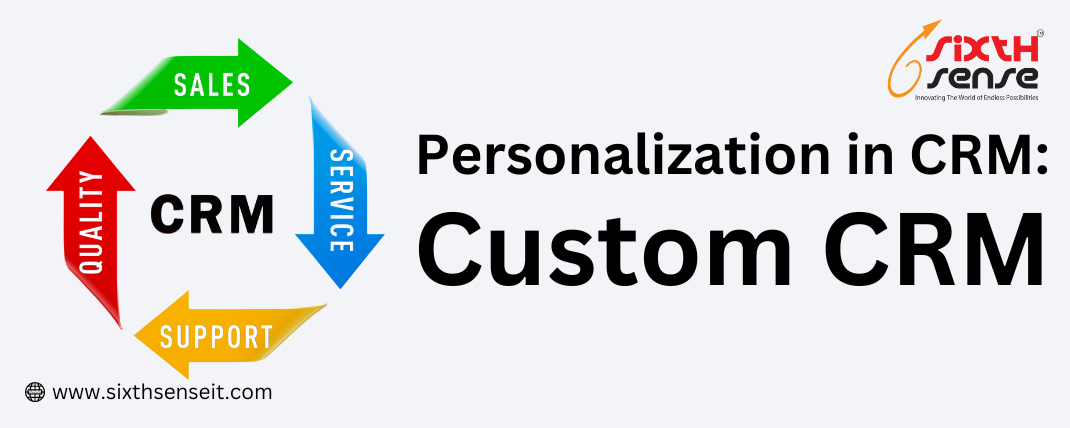
How Custom Software Development Offers Scalability and Flexibility


In the dynamic and ever-changing world of business, adaptability and scalability are crucial for success. Companies need to be prepared to grow and pivot as market conditions evolve. Custom software development has emerged as a powerful solution, offering businesses the scalability and flexibility they need to thrive. In this comprehensive guide, we explore the realm of custom software development and how it equips businesses with the tools to grow, adapt, and succeed in the modern business landscape.
In today's business landscape, adaptability isn't just an advantage; it's a necessity. Market conditions change rapidly, and companies must be prepared to pivot, grow, and adjust their operations to stay competitive.
Custom software development is a game-changing solution for achieving scalability and flexibility. It offers businesses tailored tools that can expand, adapt, and evolve with the company's needs. In this guide, we explore how custom software development equips businesses to thrive in the modern business landscape.
The business landscape is in a constant state of flux. Market dynamics, consumer preferences, and technology trends change rapidly, and companies need to be ready to adjust their strategies and operations accordingly.
While pre-packaged software can be useful, it has limitations. It's designed to be one-size-fits-all, and it may not provide the scalability and adaptability that businesses require to navigate changing market conditions.
To succeed in today's competitive environment, businesses must be prepared to grow and adapt. Scalability and flexibility are essential for long-term success.
Custom software development involves creating software solutions tailored to meet the specific needs of a business. Unlike off-the-shelf software, custom software is built to address the unique challenges and processes of a particular company.
Customization is the hallmark of custom software development. This versatility allows for precise alignment with business processes, enabling companies to operate at peak efficiency and adapt as needed.
Custom software offers a multitude of benefits, including:
Integration: Seamlessly work with existing systems.
Precision: Exact fit to your business processes.
Cost-Effectiveness: Long-term savings due to efficient operations.
Competitive Edge: Unique features that set you apart.
Custom software's ability to boost scalability and flexibility is a driving force behind its growing popularity.
Scalability is the ability of a system to expand, adapt, and handle increased loads without a significant decrease in performance. In the business context, this means being able to grow, accommodate more users, and handle more data without major disruptions.
Future-proofing is about ensuring that your business operations can handle future growth and changes without major overhauls. Custom software development is a key tool for future-proofing your operations.
Custom software can be designed with scalability in mind, allowing for the addition of new features, integrations, and users without the need for a complete software replacement. This enables companies to adapt quickly to changing conditions and capitalize on opportunities for growth.
Market conditions change rapidly, and businesses need to be able to pivot quickly to respond to these shifts. Custom software development provides the flexibility to adapt as needed.
To stay competitive, businesses must prepare for technological trends and emerging technologies. Custom software can be updated to incorporate new features and adapt to the changing landscape, ensuring continued adaptability.
Custom software can be designed to support flexible and adaptive operations. It allows businesses to respond rapidly to market changes, new regulations, and emerging technologies, positioning them for success in an ever-changing environment.
Discover how a manufacturing company improved its production process efficiency by customizing software solutions for quality control, inventory management, and supply chain logistics, all while maintaining scalability for future growth.
Explore how a healthcare facility transformed patient care by implementing custom software for appointment scheduling, electronic health records, and billing processes, achieving greater efficiency and adaptability in an ever-evolving healthcare landscape.
Learn how an e-commerce platform utilized custom software to personalize the shopping experience for customers, resulting in increased sales and customer loyalty, all while maintaining the flexibility to adapt to changing market dynamics.
Custom software development often follows agile methodologies, enabling businesses to adapt to changing requirements and market conditions rapidly. Agile development encourages collaboration, responsiveness, and adaptability.
Agile development practices allow businesses to make changes quickly based on evolving needs. This adaptability ensures that custom software remains in sync with changing business conditions.
Staying ahead of the curve in terms of technology is crucial for remaining competitive. Custom software allows businesses to adapt to emerging trends and technologies, maintaining their edge in the market and driving scalability and adaptability.
Explore the pros and cons of in-house development versus outsourcing. Consider factors like expertise, cost, and resources when making this critical decision.
When outsourcing, selecting the right development partner is crucial. This chapter offers guidance on evaluating potential partners, examining their portfolios, and assessing their compatibility with your business goals.
Effective communication and collaboration with your development partner are essential for project success. Learn how to establish a productive working relationship to ensure your custom software aligns with your vision of scalability and flexibility.
The technology landscape is continually evolving. This chapter explores emerging trends in custom software development, from AI and machine learning to blockchain and the Internet of Things (IoT), and how they will further boost scalability and adaptability.
To remain competitive, businesses must prepare for the future. This includes understanding the implications of emerging technologies and being ready to adapt. The future of custom software development is a future of even greater scalability and flexibility.
Custom software development isn't just about boosting scalability and flexibility; it's about transforming businesses. It empowers companies to be more adaptable, scalable, data-driven, and competitive. The flexibility and tailor-made nature of custom software position businesses for success.
A Scalable and Flexible Future for Business Success
In today's fast-paced business world, scalability and flexibility aren't just options; they're necessities. Custom software development offers a strategic path to achieving and maintaining scalability and adaptability. By focusing on customization, future-proofing, adaptability, agility, and innovation, businesses can position themselves for sustained success. Embracing custom software development isn't just an investment; it's a commitment to a scalable and flexible future.



















































































































